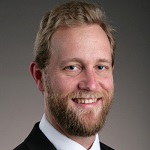Spectroscopic Ellipsometry: Principles, Considerations, & Applications
This webinar is hosted By: Thin Films Technical Group
11 July 2024 20:00 - 21:00
Eastern Daylight/Summer Time (US & Canada) (UTC -04:00)Spectroscopic ellipsometry is a versatile, non-destructive optical measurement technique that combines superb precision with a high degree of surface sensitivity. However, in some cases, it is precisely its excellent sensitivity that can result in ellipsometry being one of the more challenging optical metrology methods to implement skillfully.
In this webinar, Dr. Max Junda will first provide an overview of how an ellipsometry measurement works and the data that is collected. Next, the factors that influence designing a successful experiment will be discussed from both a data collection and optical modeling perspective. Finally, a few interesting applications will be presented to demonstrate the various problems ellipsometry can be used to help solve.
Subject Matter Level: Introductory - Assumes little previous knowledge of the topic
What You Will Learn:
• Basic operational principles
• Practical considerations for successful ellipsometry experiments
• A few ways ellipsometry can be used for different applications
Who Should Attend:
• Those involved in thin film fabrication and processing
• Those involved in the design and fabrication of thin film optical devices
• Anyone with an interest in optical metrology
About the Presenter: Maxwell Junda from Covalent Metrology
 Max Junda has been leading the spectroscopic ellipsometry services at Covalent Metrology since 2019. In this capacity, he has provided expert measurement, data modeling, and consulting services to over 110 separate customers across many industries. Max's particular interest is in developing data collection and optical modeling methods that are customized to each specific application to provide the most reliable results and expand the areas in which ellipsometry can used beyond standard use-cases. His previous experience in graduate school was wide-spectral-range ellipsometry from the THz to vacuum ultraviolet and application of ellipsometry to the fabrication and optimization of thin film solar cells.
Max Junda has been leading the spectroscopic ellipsometry services at Covalent Metrology since 2019. In this capacity, he has provided expert measurement, data modeling, and consulting services to over 110 separate customers across many industries. Max's particular interest is in developing data collection and optical modeling methods that are customized to each specific application to provide the most reliable results and expand the areas in which ellipsometry can used beyond standard use-cases. His previous experience in graduate school was wide-spectral-range ellipsometry from the THz to vacuum ultraviolet and application of ellipsometry to the fabrication and optimization of thin film solar cells.
Max earned a PhD from the University of Toledo and a BS from Middlebury College, both in Physics.
